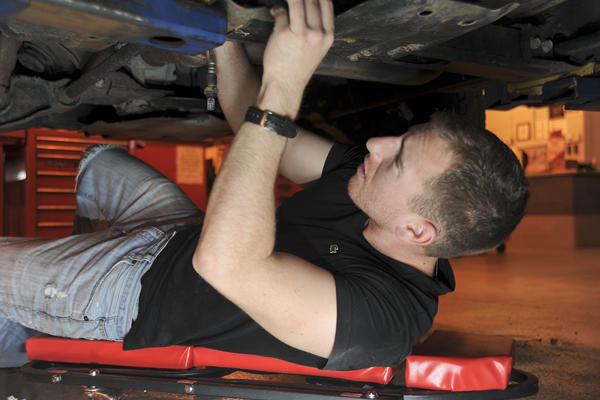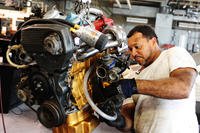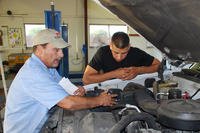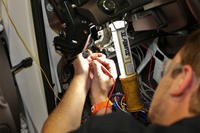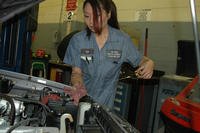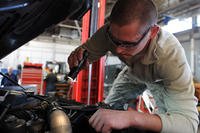Content provided courtesy of USAA.
Most days, our cars take us smoothly from here to there ... and back again.
So, not surprisingly, we often take their reliability for granted. But even the trustiest of vehicles still relies on you to complete five basic maintenance steps for better survival in the long run.
You should likely have lower maintenance and repair costs and a safer drive if you regularly follow these essential tips:
1. Understand the Suggested Maintenance Schedule
Every new car comes with an official manual loaded with recommendations for regular maintenance. The manufacturer can't compel you to follow them, but it would be smart if you did. Among other maintenance tips, the manual tells you how to:
- Change the oil and how often to do so.
- Make sure your fluids are the right color and at the right level.
- Know the right grade of fuel to use for your vehicle. Regular unleaded or premium, diesel or ethanol? It matters.
2. Maintain Your Tires
Your auto manual suggests how often a mechanic should rotate your tires. Check your tires regularly to ensure they're properly inflated and that the tread is still at a safe level. This makes for smooth rides, better gas mileage and lower risk of a blowout.
3. Listen to Your Car
You probably don't speak "dog," but if you have one, you learn to read the signals that your pup is hungry or needs to go outside. You can understand your car the same way. Listen for squealing or grinding noises that mean your brakes need to be checked. Is your steering wheel shaking more than usual on smooth roads? That's an indicator of potential trouble ahead. Don't ignore vehicle sights and sounds that are inconsistent from one day to the next. Address them as they change. If something on the car feels wrong, it probably is.
4. Practice Good Driving Habits
Be kind to your car. Don't try to make it do zero to 60 in three seconds. Slow starts cause less strain on the engine. Change gears smoothly as you accelerate. And don't expect it to stop on a dime either. That damages the brakes.
5. Keep Your Car Clean Inside and Out
Your auto's exterior and undercarriage attract road debris such as hot tar, dirt and bugs in the summer and salt in the winter. Over time, those elements can give the components of your vehicle — including motor parts and external body structure — a beating. As for the inside, well, you'll enjoy your car more and extend its resale value if you keep it tidy.
